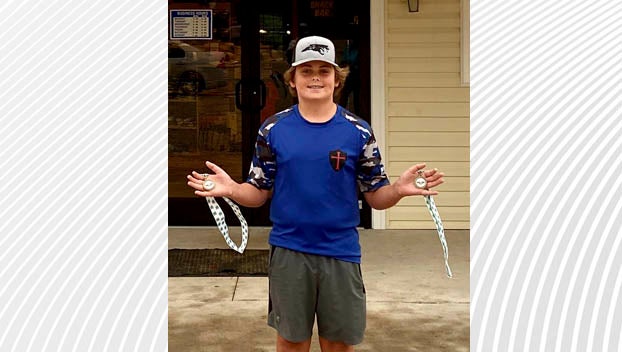Planning ahead related to advance care planning
Published 9:30 am Saturday, August 8, 2020
|
Getting your Trinity Audio player ready...
|
MARY LOU INFINITO
If nothing else, this year, COVID-19 has shown us just how unpredictable the future can be, and how quickly things can change. Everyone has been affected by the pandemic in some way. Hopefully, one of those ways is to think about your future and realize just how fragile life truly is.
Would your family know the kind of health care you would want if you could not speak for yourself? Many families were placed in a situation where they had to make some extremely difficult decisions for a loved one and had no idea what that person would have chosen, given the circumstances. Other found themselves at odds with the decisions being made by other loved ones.
Please know that you can greatly reduce the risk of this happening to your loved ones by simply letting your values be known and telling your family what is most important to you. By doing this, you give your loved ones the gift of knowing that they are speaking for you as your advocate. Once in a medical emergency situation, things will be extremely emotional, and the more people who know the type of person you are, and what matters most to you, the more likely it is to happen the way you would choose.
The first step is to think about what treatments you would want medically, especially when there is very limited likelihood of recovery. Once you decide what is important to you, the next step is to talk to your loved ones. The more people who are aware of your wishes, the more likely it is to happen. Talk to your medical team so they can document your wishes in your medical chart. And, if you are a part of a faith community, share your thoughts with them so they will be there to support your loved ones during this difficult time.
Once you have open discussions with your loved ones, you can make these decisions legal in the state of North Carolina by completing an advance directive. Completion of the documentation is the third step, and there is a practical tool available on the Vidant website at www.vidanthealth.com/AdvanceDirective to assist you. This tool can walk you through the whole five-step process that can guide your decision making.
In this third step, it is important that you select someone to be your voice in the event you can no longer speak for yourself. This person would serve as your health care agent. You get to determine the best person for you that will a) honor your choices b) advocate for you and what you have told them that you want and c) be strong enough to handle the struggles of other loved ones. This person is literally your voice and would have the same authority to act as you would, if you were able. It is also wise to always have a “back-up” plan, so determine who you would want to be your health care agent in the event that the first person is unavailable.
These are difficult things to think about and even harder to talk about. Conversations now can lead to better end-of-life care and assuring that you are treated according to your values.
As we have seen during this pandemic, death occurs at all ages and in various circumstances. Advance planning is not just for the frail elderly. Everyone over the age of 18 should have a conversation with their loved ones about the care they would want and then document their wishes in an advance directive.
For additional information, please feel free to contact Mary Lou Infinito, community outreach coordinator, Vidant Beaufort Hospital, at Marylou.Infinito@vidanthealth.com or 252-382-3945.





